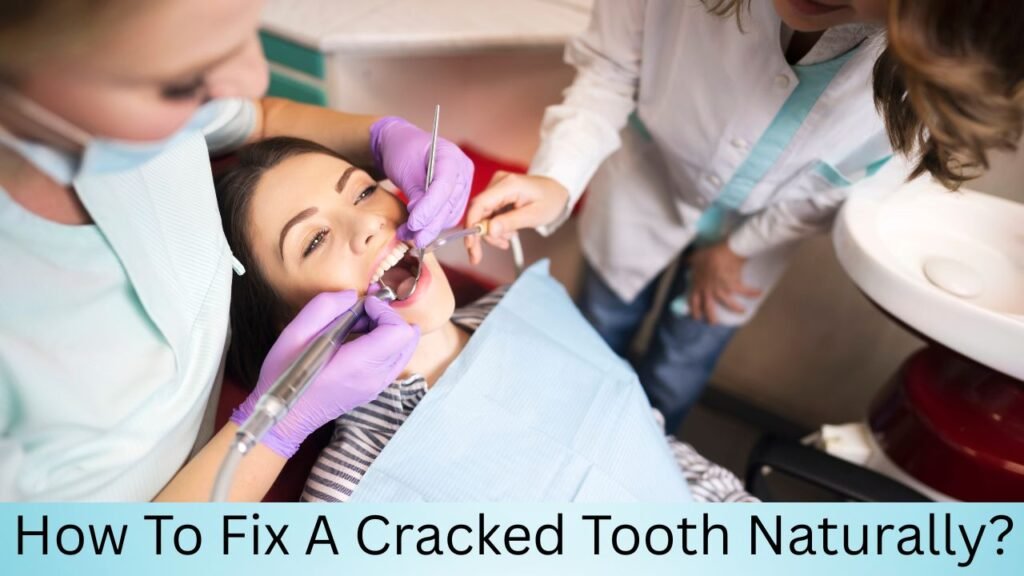A cracked tooth is one of those dental issues that can cause a lot of discomfort, sometimes leaving you wondering whether there’s a way to fix it at home before visiting the dentist. The truth is, while natural remedies can relieve cracked tooth pain temporarily, they can’t actually repair the crack. This guide will help you understand how to relieve the discomfort and when it’s time to seek professional dental care.
The Crucial Truth: Natural Remedies Cannot Fix a Cracked Tooth
Before diving into home remedies, let’s be clear: natural remedies cannot repair the physical crack in your tooth. While they may provide temporary relief, they should never be considered a substitute for professional dental treatment. Delaying a visit to the dentist can lead to worsening of the crack or even more severe damage to the tooth and surrounding tissues.
That being said, natural care methods can help alleviate the pain until you’re able to get professional help. Here’s how you can manage cracked tooth pain at home.

What You Can Do Naturally — Temporary Relief and Support
How Can a Cold Compress Help with Cracked Tooth Pain?
A cold compress can work wonders to reduce swelling and numb the pain associated with a cracked tooth. The cold helps constrict blood vessels, which can temporarily reduce inflammation and relieve discomfort.
How to use it:
- Wrap some ice in a cloth or use an ice pack.
- Apply it to the outside of your cheek near the affected area for 15-20 minutes at a time.
- Repeat this as necessary, especially after meals when the pain may intensify.
How Does Clove Oil Help with Cracked Tooth Pain?
Clove oil has been used for centuries as a natural analgesic due to its main ingredient, eugenol, which has pain-relieving properties. It works as a topical painkiller for your cracked tooth.
How to use it:
- Dilute 1-2 drops of food-grade clove oil in a teaspoon of carrier oil (such as olive oil).
- Use a cotton ball to apply it gently to the affected area.
- Do this 2-3 times daily, but be cautious not to swallow the oil.
How Does Saltwater Rinse Help with Cracked Tooth Pain?
A saltwater rinse is an excellent natural solution to reduce bacteria in the mouth and soothe the gums around a cracked tooth. It can also provide a gentle, antiseptic environment that promotes healing.
How to use it:
- Mix 1 teaspoon of salt in a glass of lukewarm water.
- Swish the solution in your mouth for 30 seconds, making sure to focus on the area around the cracked tooth.
- Repeat this after meals and before bed for the best results.
How Can Peppermint Tea Bags Help with Cracked Tooth Pain?
Peppermint tea bags have a cooling and numbing effect, which can temporarily relieve the discomfort of a cracked tooth.
How to use it:
- Steep a peppermint tea bag in hot water, then allow it to cool.
- Once cool, apply the tea bag directly to the cracked tooth area for about 5-10 minutes.
- Repeat this method as needed for temporary pain relief.
Turmeric: The Anti-Inflammatory Power
Turmeric contains curcumin, which is known for its anti-inflammatory properties. It can reduce swelling and provide comfort in the area around the cracked tooth. However, it’s important to note that it can stain your teeth temporarily.
How to use it:
- Mix turmeric powder with a little water to create a paste.
- Apply the paste gently to the affected area and leave it on for about 10-15 minutes.
- Rinse your mouth afterward to avoid staining.
When Should You See a Dentist for a Cracked Tooth?
Why Can’t a Cracked Tooth Heal Naturally?
While you might be tempted to rely solely on natural remedies, the truth is that a cracked tooth cannot heal on its own. The crack in the tooth will remain, and without professional intervention, it can get worse over time. Delaying a dentist visit could result in the crack spreading, causing more pain and potentially leading to a tooth infection.
Symptoms that require immediate dental attention include:
- Severe pain or throbbing sensation.
- Swelling, redness, or warmth near the cracked tooth.
- Visible cracks, chips, or fragments of the tooth.
- Pus or fever, which could indicate an infection.
Even though these natural methods provide temporary relief, only a dentist can fix a cracked tooth with appropriate treatments like dental bonding, crowns, or in severe cases, root canal therapy.
What Are the Dangers of Ignoring a Cracked Tooth?
Ignoring a cracked tooth might lead to severe tooth decay or an abscess, which could cause further complications. For instance, if bacteria get into the crack, it can lead to an infection in the pulp of the tooth. This could require more invasive treatments, like a root canal procedure or even extraction.
Therefore, it’s crucial to seek professional dental care even if you’re using natural remedies to manage the pain in the meantime.
Why You Still Need a Dentist: Professional Treatments for Cracked Teeth
Even though natural remedies can relieve cracked tooth pain temporarily, only a dentist can repair the actual damage. Professional treatments like dental bonding can seal small cracks, while larger fractures might need a crown for structural support. If the damage is extensive, a root canal therapy might be required to remove damaged tissue from inside the tooth.
Conclusion:
Natural remedies, while helpful for managing pain and offering temporary relief, should never replace a visit to the dentist. If you suspect that you have a cracked tooth, it’s essential to schedule an appointment with your dentist as soon as possible to prevent further damage and potential infection.
Call to Action: If you’re experiencing a cracked tooth, don’t wait—prioritize scheduling a dental appointment immediately to prevent further complications and ensure long-term oral health. Natural remedies can ease discomfort, but only a dentist can fix the problem properly.